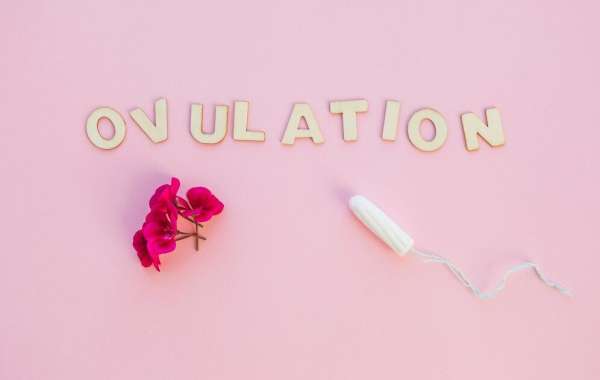In recent years, the conversation around sustainability and environmental impact has reached nearly every corner of our daily lives. One area that often goes overlooked, however, is period care. The truth is, many of the products we use during menstruation—tampons, pads, menstrual cups, and more—contain chemicals and materials that are not only harmful to our bodies but also to the planet.
Chemical Exposure and Health Risks
The most common toxins in period products are dioxins, which are by-products of the bleaching process used to whiten cotton. Studies have shown that dioxins can cause a range of health issues, including hormone disruption, immune system suppression, and even increased risks of reproductive and certain types of cancers.
Although the level of dioxins in most products is low, the cumulative exposure over time could have detrimental effects. Additionally, many tampons and pads are treated with synthetic fragrances to mask odors, but these chemicals can irritate the skin and mucous membranes.
Repeated exposure to these fragrances can lead to allergic reactions, rashes, or even more severe health problems.
Microplastics: Polluting Our Oceans and Landfills
The microplastics present in synthetic materials like pads and tampons have become a serious environmental concern. These tiny plastic particles do not break down easily and often end up in landfills, contributing to the growing global plastic waste crisis.
As these products decompose, they release toxic chemicals into the soil and water, affecting ecosystems and wildlife.
How Harmful Chemicals in Conventional Period Have an effect?
One of the biggest concerns about mainstream period care products is the presence of chemicals that can disrupt your body's hormonal balance. For example, dioxins, a byproduct of bleaching, are toxic compounds that have been linked to cancer, reproductive issues, and developmental problems.
Phthalates and parabens, commonly used as preservatives and fragrances, can mimic estrogen in the body, contributing to endocrine disruption and affecting menstrual cycles.
Environmental Impact of Disposable Period Products
The environmental footprint of traditional menstrual products is alarming. Single-use pads and tampons are often made from a combination of cotton (which can be heavily pesticide-treated), synthetic fibers like rayon, and plastic.
These products are not biodegradable and take hundreds of years to break down in landfills.
In fact, it is estimated that over 45 billion tampons, pads, and pantyliners are used globally each year, contributing to millions of tons of waste.
Additionally, the production of these products involves extensive use of water, energy, and chemicals, all of which negatively impact the environment.
Unsustainable Production: A Burden on the Planet
The production of conventional period products also places a significant burden on the planet's resources. Cotton farming, one of the primary sources of raw material for many tampons, requires enormous amounts of water, pesticides, and fertilizers.
In fact, cotton is one of the most pesticide-intensive crops in the world. This unsustainable agricultural practice contributes to soil degradation, water scarcity, and pollution.
How Natural period protection plays a role in Toxic-Free period care?
Many conventional menstrual products, such as tampons, pads, and pantyliners, contain synthetic chemicals like pesticides, bleach, and dioxins. These chemicals can be absorbed by the body, leading to potential health risks such as irritation, hormonal disruption, and even long-term diseases.
These Natural period care products, which offer Natural period protection such as organic cotton pads, tampons, and menstrual cups, are free from these harmful substances. They are made with natural, non-toxic materials that are gentle on the skin and body.
The Growing Popularity of Toxic-Free Period Products
One of the most popular toxic-free period products is the menstrual cup. Made from medical-grade silicone or rubber, menstrual cups are an excellent choice for individuals who prefer a reusable and hygienic option.
These cups are designed to collect menstrual flow rather than absorb it, making them a more efficient and sustainable alternative.
Another widely embraced option is organic cotton pads and tampons, which are made from 100% natural cotton grown without harmful pesticides or chemicals. These products are not only safer for your body, but they are also better for the environment.
Unlike traditional cotton, which often requires heavy pesticide use, organic cotton is grown in a way that preserves soil health and biodiversity.
Decreasing Water Usage and Less Chemical Pollution
As mentioned earlier, cotton farming is one of the most water-intensive agricultural practices. By choosing organic cotton or alternative materials for your period care products, you help reduce the strain on global water resources.
Furthermore, the water footprint of reusable products like menstrual cups is far lower than disposable options.
Less Chemical Pollution By opting for products that are free from toxic chemicals like chlorine, dioxins, and pesticides, you contribute to the reduction of chemical pollution in the environment.
These chemicals not only affect the health of people who use them but also contaminate the soil, water, and air, harming wildlife and ecosystems.
Conclusion
In conclusion, the impact of traditional period care products on both our health and the planet cannot be ignored. From the chemical exposure they cause to the waste they generate, conventional tampons and pads have far-reaching negative effects. By making the switch to toxic-free, sustainable alternatives, we can safeguard our health, reduce environmental harm, and take meaningful steps towards a more sustainable future.







